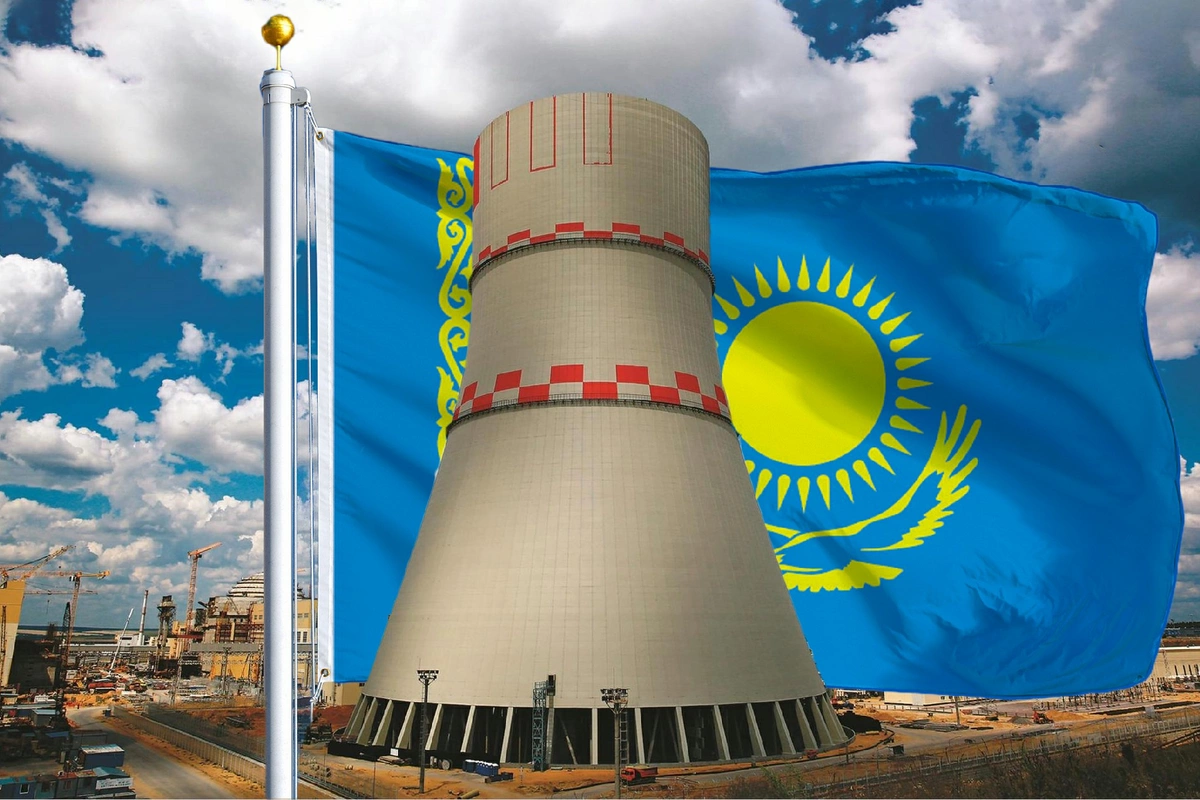
Google images
Kazakhstan faces a growing electrical power deficit, largely due to ageing thermal power facilities from the Soviet era that desperately require replacement. At the same time, the country has set an ambitious target of achieving carbon neutrality by 2060 and is committed to transitioning towards sustainable energy solutions, The Caspian Post reports citing NS Energy.
President Kassym-Jomart Tokayev’s endorsement of the Strategy for Achieving Carbon Neutrality underscores Kazakhstan’s dedication to this initiative. Given the diminishing feasibility of constructing new thermal power plants (TPP), there’s an imperative to investigate efficient, green alternatives, such as nuclear energy. Indeed, President Tokayev has already suggested holding a national referendum to gauge the country’s position on building a nuclear power plant (NPP), setting the stage for an in-depth discussion about our energy trajectory. Significantly, Kazakhstan’s abundant natural uranium reserves position it as a dominant global player in the production of raw materials for nuclear fuel.
The integration of renewable energy sources (RES) is a cornerstone of Kazakhstan’s overarching energy strategy, which seeks to realise sustainable development and counteract the impacts of climate change. RES are instrumental in reducing reliance on ageing thermal power facilities, propelling the nation towards a greener and more sustainable energy horizon.
However, while renewable energy holds immense potential, it is characterised by intermittent generation. These intrinsic limitations of RES suggest that relying solely on them might not suffice to cater to the nation’s escalating power needs.
In this context, nuclear energy stands out as an ideal counterpart to RES, promising consistent, dependable, and continuous power. Nuclear power plants (NPPs) boast the capability to function efficiently at high capacities, an indispensable feature for the large manufacturing enterprises that make up the bulk of Kazakhstan’s energy demand.
The imperative to incorporate nuclear energy is further emphasised by its negligible carbon emissions, offering an eco-friendly solution in sync with the country’s carbon neutrality pledge. Additionally, given Kazakhstan’s vast deposits of natural uranium, leveraging nuclear energy emerges as a strategic move. This not only capitalises on native resources but also fortifies energy resilience.
Economic diversification is crucial for Kazakhstan to reduce dependency on a single sector and to mitigate risks associated with market fluctuations. The introduction of NPPs caters to this need by broadening the economic base and fostering the growth of multiple sectors. For instance, the nuclear industry’s development is bound to stimulate advancements in research, technology, manufacturing, and services related to nuclear power generation.
The establishment of NPPs would also lead to extensive job creation, transcending the immediate nuclear sector. As global experiences illustrate, one job in the nuclear sector generates up to 10 jobs in related industries, fostering a broad spectrum of employment opportunities. These range from the construction, operation, and maintenance of the nuclear facilities to the development and provision of technologies, services, and supplies necessary for nuclear power generation.
Beyond direct employment, the host regions of NPPs would witness a surge in investment, leading to enhanced local infrastructure, increased economic activities, and improved standards of living. The construction phase itself would bring in a plethora of opportunities for local businesses and suppliers and create a multitude of temporary and permanent jobs, fostering regional economic growth.
Concerns about nuclear power are understandably rooted in its potential dangers and the severe aftermath of potential mishaps or negligence. In cognizance of the paramount importance of safety in nuclear operations, the National Nuclear Center of Kazakhstan has tirelessly worked to develop and enhance safety protocols, ensuring that nuclear energy is harnessed securely and responsibly. This dedication to safety is bolstered by ongoing collaborations and partnerships with prestigious international bodies expert in nuclear technologies.
To exemplify, strategic alliances have been forged with global frontrunners in nuclear power technologies, including Toshiba Corp, Marubeni Utility Services, and JAEA (Japan Atomic Energy Agency). These relationships are instrumental in absorbing global best practices and infusing state-of-the-art technologies into the safety frameworks of Kazakhstan’s nuclear ventures.
Additionally, beyond merely preventive measures, the National Nuclear Center of Kazakhstan is deeply committed to charting out exhaustive response blueprints to address any unforeseen situations decisively and promptly. This foresight includes routine drills, mock scenarios, and instructional modules to equip staff with the requisite expertise and insight to proficiently handle emergency situations.
This rigorous emphasis on safety is further echoed in myriad research endeavours and investigations aimed at delving into the intricate facets of nuclear safety. This rigorous inquiry encompasses the analysis of diverse reactor designs, probing potential weak points, and conceptualizing innovative strategies to alleviate the ramifications of critical incidents.
Kazakhstan’s foray into controlled thermonuclear fusion also signifies a leap towards a future powered by inexhaustible and environmentally friendly nuclear energy. With the inauguration of the Tokamak KTM at the National Nuclear Center in Kurchatov, Kazakhstan has already established itself among those technologically elite nations that are actively engaged in thermonuclear research. This venture not only reinforces the country’s technological prowess but also further encourages international collaboration and advancement in fusion technologies.
In conclusion, Kazakhstan’s progressive strides in nuclear research, its robust experimental foundation, and its steadfast dedication to enhancing safety protocols uniquely qualify it as an eminently suitable location for the construction of a nuclear power plant. Such an initiative not only meets the needs of energy independence but also diversifies the nation’s electricity generation portfolio, serving as a technology-based cornerstone in combating the global environmental issues arising from hydrocarbon-based energy consumption.
The national referendum proposed by President Tokayev invites holistic reflection on our energy landscape and represents a collective stride towards a sustainable, self-sufficient, and environmentally responsible future for Kazakhstan. The time is ripe for Kazakhstan to leverage its capabilities and resources in spearheading a nuclear energy programme, ensuring the well-being and prosperity of its populace, and contributing significantly to global sustainability initiatives.
Share on social media